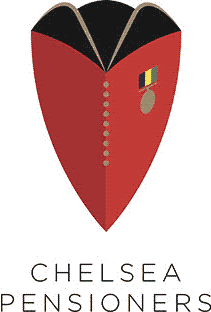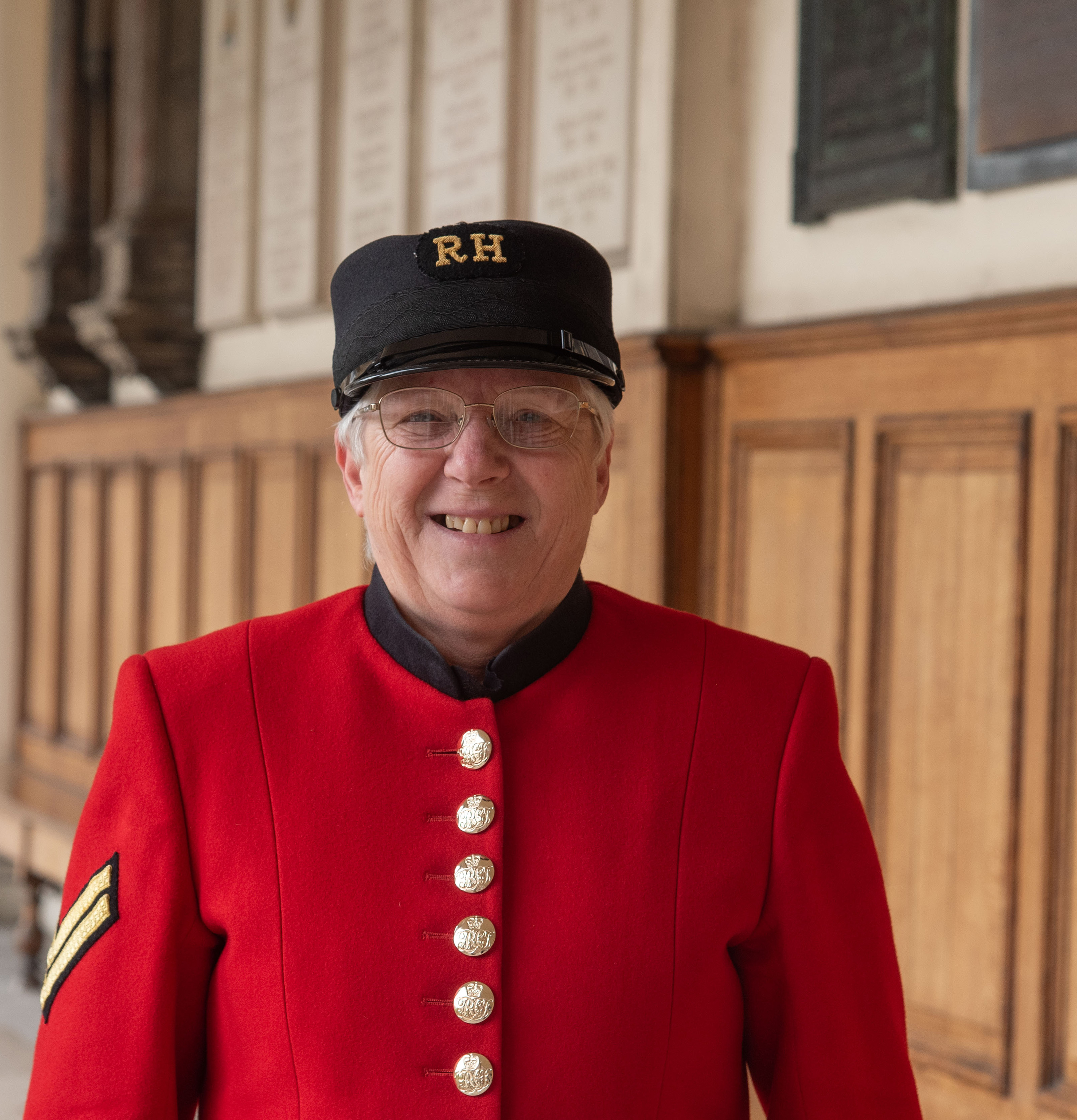Celebrating Women in the Army
8th March 2024
This International Women’s Day, we are celebrating the incredible women who have served and continue to serve in the British Army.
In 2018, all combat roles became open to female personnel, however, women have played a vital role in the British Army for many years.
To recognise their contribution to the nations Armed Forces, some of our female Chelsea Pensioners shared what their time was like in the Army and now as a Chelsea Pensioner…
Barbara Whilds
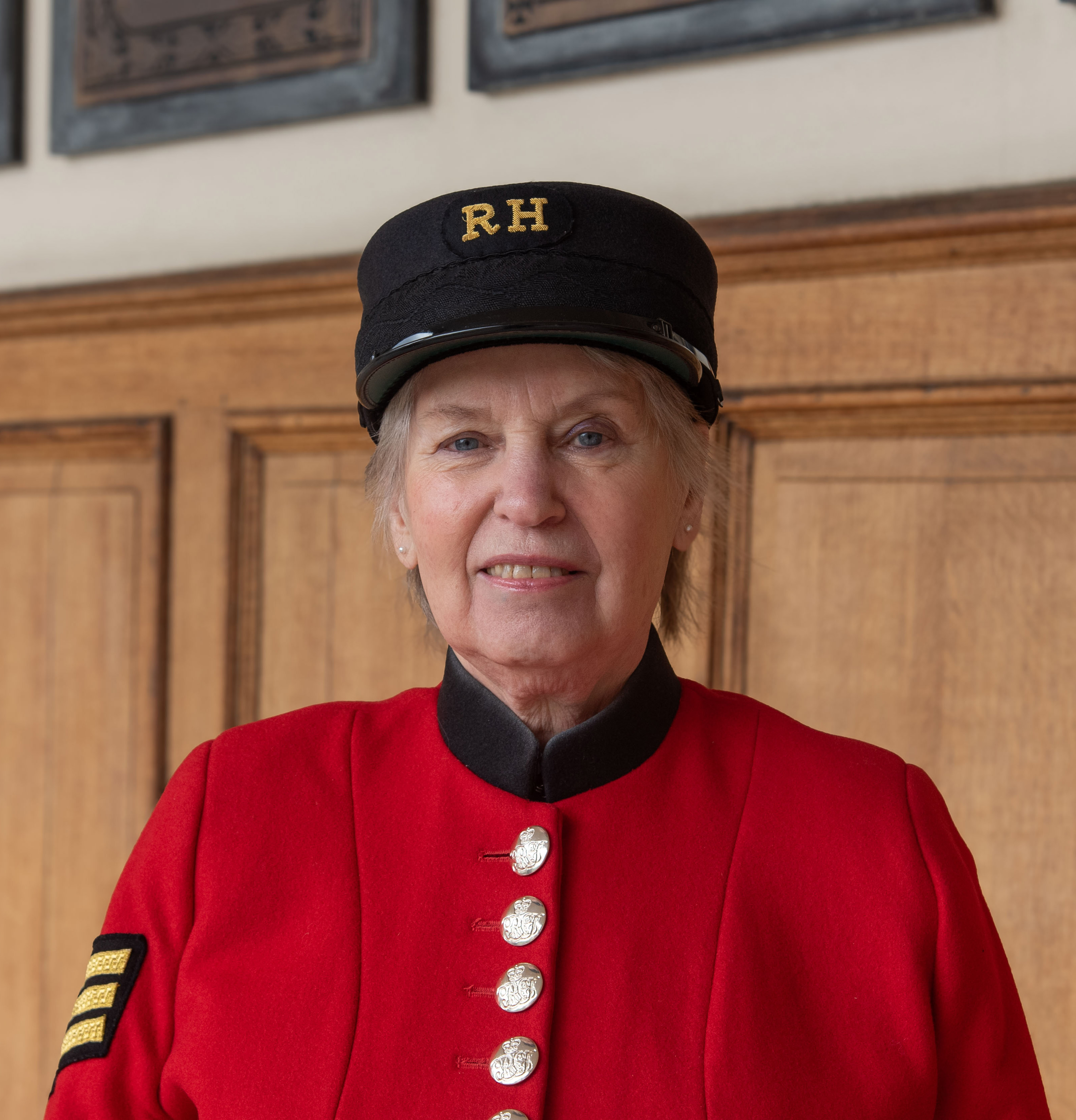
I joined in 1970 and was in the Army for nine years. It was great! I was very fortunate because things in those days were very different. At first, they were reluctant to let me do the training for psychiatry. They only really had women working in the offices at Netley. But eventually I got there and some of the seniors there said we need a woman. So that was me. I worked in the groups with them and everything. It was amazing training. Wonderful, wonderful! I met some incredible people.
My training was combined Army and Navy, so I worked a lot with the Navy as well. A lot of the psychiatrists in the Navy were brilliant too, so I also have a lot of admiration for them.
I am very proud of what I did in psychiatry in the Army. In those days, PTSD wasn’t called that. Soldiers were coming back with what we called nervous exhaustion. It was at the time of the Irish Troubles. We had some very poorly men coming back mentally, and there was some very good work done.
We looked after military families as well. Some were young girls, daughters of soldiers, suffering with things like anorexia nervosa. Again, that was quite a new diagnosis in those days. Our unit developed our own regime to look after them which was quite successful.
When I retired, I’d been a nurse for so long and I was no longer that. I knew nothing about this place, really. Then there was a television programme showing women coming in here. I thought, I wonder if I could. So, I came for my four day stay and thought, this is for me! When I was no longer a nurse, I felt like I lost my identity a bit. But now, I’m a Chelsea Pensioner. I’ve been here since 2011.
We’ve been quite well accepted here. It was very important when I came in to be treated the same as the men.
I’ve got an allotment here, I love gardening. I grow fruit – gooseberries, raspberries, rhubarb.
It’s given me so much freedom coming to the Royal Hospital, and I’m determined to fulfil my bucket list. I’ve done so many things since joining. Been to the Grand Canyon, down the Nile, slept in the Arctic. I was part of the group that took part in the London Olympics Opening Ceremony. I couldn’t have done any of that without being here. I’ve met some incredible people since joining the Royal Hospital Chelsea.”
Carol Knight
“I was military from the day I was born and the minute I was 17, I went to the recruiting office. My father was a Regimental Sergeant Major so the military runs in the family.
I was a WRAC staff driver, staff car and heavy goods until I left the Army to start a family.
After I divorced and my children had left home, I moved to Manchester to care for my parents. I lost Mum in 2007 and Dad in 2017. We had to sell the house and I moved into a flat. I worked in a pub at weekends, but never saw anyone else for the rest of the week. My children weren’t living nearby and there’s no community anymore.
I’d heard about the Royal Hospital through my dad. You just need to be on your own and getting an old age pension to apply, so I thought, “Go for it”.
The place itself is amazing. Walking down the stairs on the long ward I remember the Chelsea Pensioners who have been here before me. Or I’ll be sitting in the Great Hall, and I’ll think, “Blimey, Christopher Wren has been here”. You wouldn’t know you were in the middle of London either.
I’ve always had respect for the Chelsea Pensioners and to be able to be part of that is unbelievable.
It’s reassuring to know that I don’t have to go anywhere from here - everything is taken care of. I’ve come to start a new chapter. I haven’t found any downside to the Royal Hospital. I’d tell everyone to give it a go and apply."
Monica Parrott
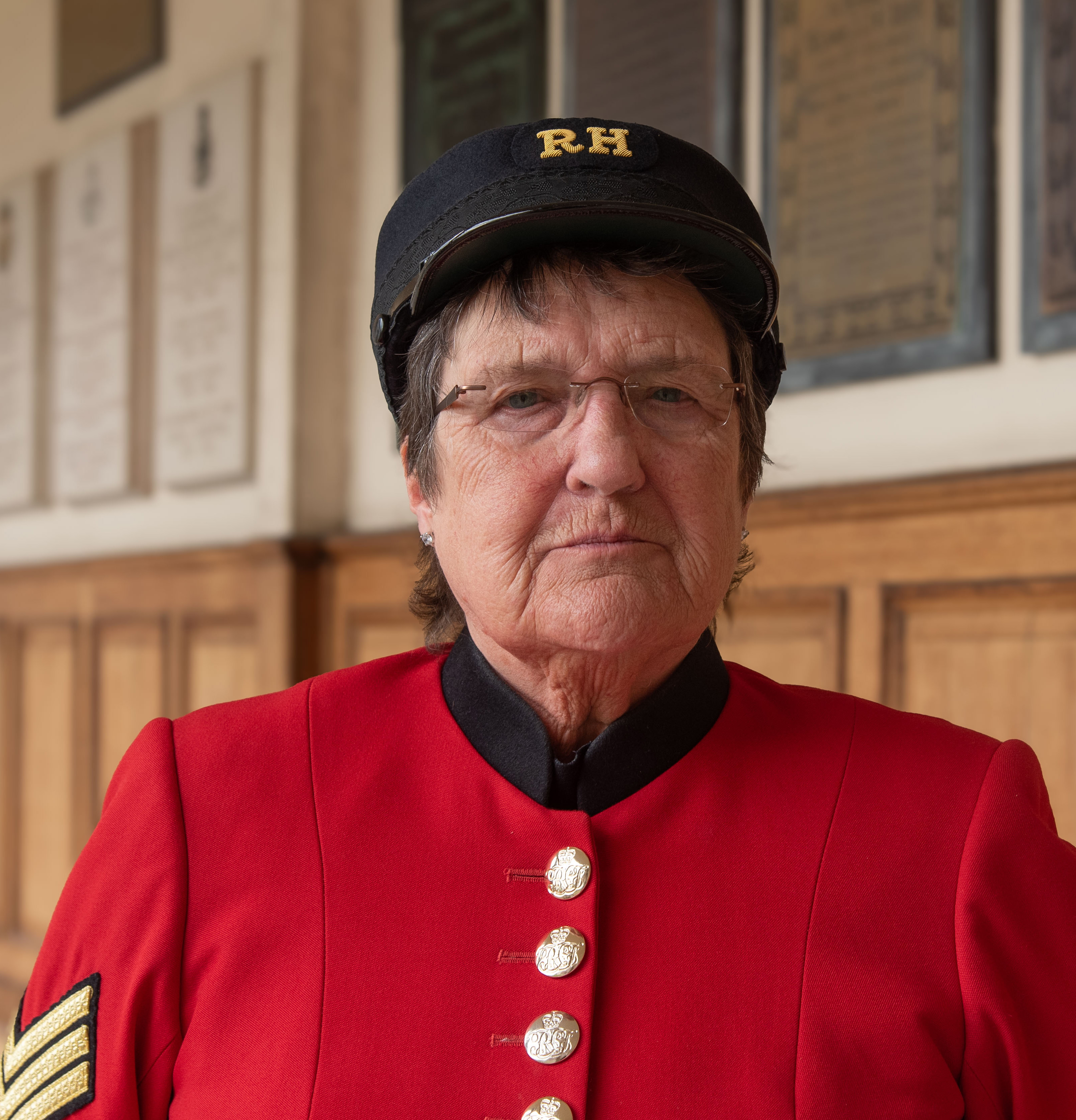
When I got home, I said to my mum, ‘I want to join the Army.’ That’s how it was. There was no forethought or anything; it just happened by accident. I was 17 and a half, not very obedient, and had no idea where I was going in my life. Going into the Army was the best thing that could have happened to me – looking back, it feels as though I was guided. My mother wasn’t pleased at all, but Dad had been in the Navy, and he was delighted. He pushed my mum into signing – I think he knew what was good for me.
When I first joined up, my desire was to be a driver. I don’t know why because there were so many other things I could have done. And I know because of my test results they wanted me to do different kinds of stuff at a higher level. But I insisted that if I got in, I’d be a driver – and I hated it! I haven’t got a mechanical bone in my body. I did pass but I was only a driver for about eight months, and I thought, I can’t do this. So, I reallocated to clerical, staff clerk. So, for the rest of the five years I was in, I stayed in clerical.
I returned home after that because my mother had started developing a heart problem. She lasted another year after I got home.
I worked in the accounts department at an aircraft factory for a little while. But a friend of mine who’d been in the QAs said ‘I think you’d make a lovely psychiatric nurse’. At first I thought it wasn’t for me. But I applied and for the next 28 years I was a nurse. I did my registered mental nurse first and then when I qualified I went to the local general hospital and did my state registered nurse, so I had the two qualifications. I preferred working in psychiatry, so I spent most of my working life in psychiatry.
I joined the WRAC association and was at one of their regimental dos one year. It was breakfast time and I remember these two women came in in scarlets. I was looking at them and thought ‘I wonder if they would take me?’. So, I got home and sent off an application and I’ve been here since January 2017.
It was a similar feeling to being guided. The guidance I had to come into the Army was the same guidance I had to become a Chelsea Pensioner. This is as near as I’m ever going to get to the Army again. It's the camaraderie, the unity. Before I came here, I felt I’d stopped living. I didn’t come here to die, I came in here to live!"
Marjorie Cole
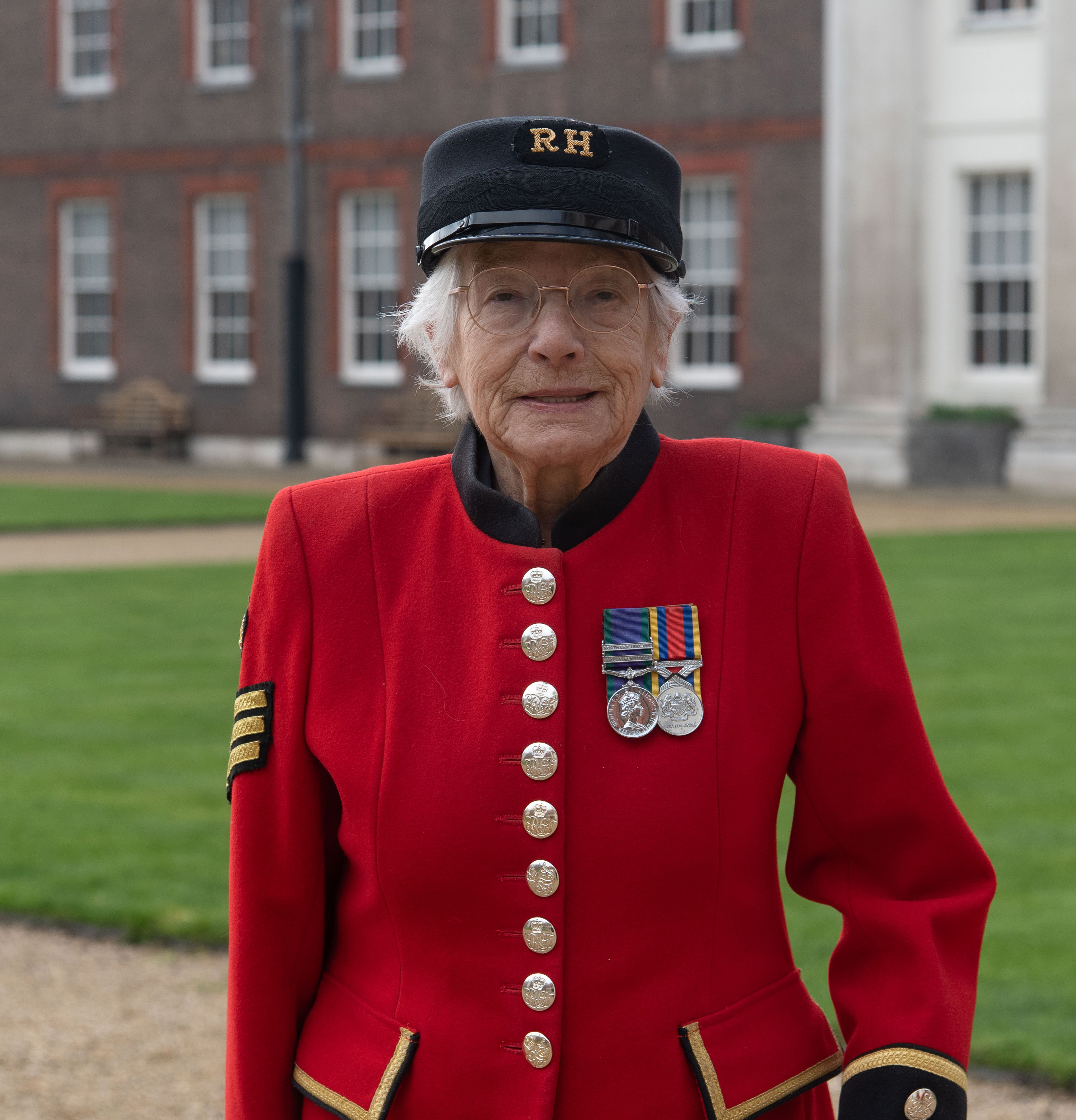
I wanted to be a physical training instructor and started the training near Aldershot but didn’t finish the course. They said I didn’t have the right accent! So, I went into catering and did that from 1963 to 1977. I went up through the ranks and ended up teaching basic cookery. I went to Singapore twice – it was fantastic. I had time off for water skiing!
In July 1966 I went for demob, but I missed the Army and joined up again in 1967. I went out as a Corporal and came back as a Sergeant. I was in Guildford, Beaconsfield and York, as well as Singapore. I loved York, where I was running a kitchen for the junior ranks of the WRAC, but I ended up in hospital for two months with back problems.
After that, I was posted to Northern Ireland. It was during the Troubles and we lost some men. My back problems returned and I had another operation. After rehab in RAF Chessington and some time posted to the Larkhill School of Artillery, I was then posted to Guildford. I was there at the time of the pub bombings. We lost two young recruits – they were only 17. Then in 1975 I went to Aldershot as cookery instructor – but in 1977 my back problems led to a medical discharge.
I went back to live with my parents in Hull, but I was 33 and really wanted a place of my own. I lived in my cousin’s flat for a while and got a job as head chef in a hotel – but it was too hard because of my back. After that, I applied for a job as catering manager of a smelting works, but it went to a man who was less qualified than me and I became very depressed. I moved to a flat above my parents. They both died and my lovely little Yorkshire terrier was killed, and I ended up severely depressed and on sick benefit. My social worker suggested I move into sheltered housing, and I moved to a one-bedroom flat in Hessle.
Every month I went to Army veterans’ meetings in Hull. It was there I heard that the Royal Hospital was taking in lady Pensioners. I thought, I have no immediate family and it would be a chance to get back into uniform. So I applied and came for a four-day stay in January 2009.
Dorothy, Winifred and I were the first ones here. I’ve been here 15 years but I’m the only original one left. We were creating history.
A few men were against it – but women gave their lives in the first World War, they were driving ambulances and working in field hospitals; then in they fought in World War 2 – some operated gun sights – and in Afghanistan and Iran and they still are fighting. I said “I just want to be treated like a Chelsea Pensioner. We’re accepted now.
It’s special here because we’re all a military family. We have something in common.”
